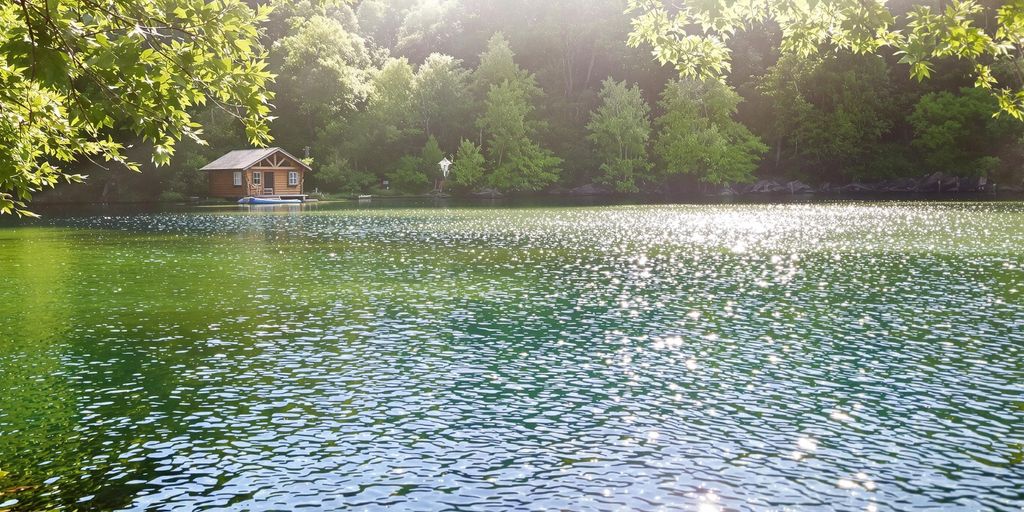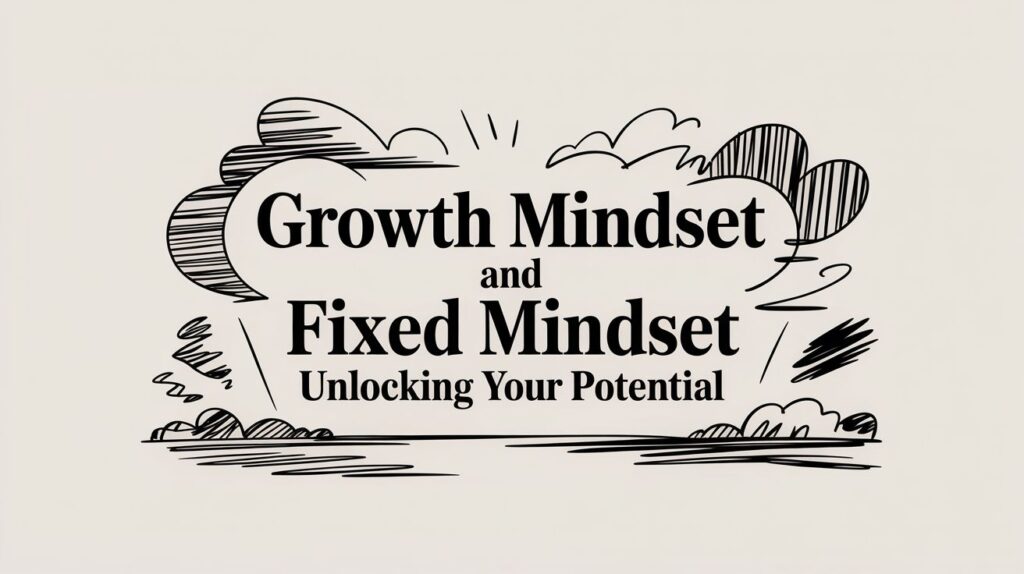Living Like Thoreau: Embracing Simplicity and Nature

Henry David Thoreau’s life and writings remind us that less can truly be more. His time at Walden Pond wasn’t just about escaping the noise of society—it was an experiment in living simply and meaningfully. Today, his ideas around simplicity, nature, and self-reliance feel more relevant than ever. Let’s explore how Thoreau’s philosophies can inspire a richer, more intentional life.
Key Takeaways
- Simplicity is powerful: Thoreau believed in cutting out the excess to focus on what truly matters.
- Nature heals: Spending time outdoors can provide clarity and peace, as Thoreau experienced at Walden Pond.
- Self-reliance matters: Thoreau taught that independence and self-sufficiency lead to personal growth.
- Mindfulness is key: Thoreau’s writings remind us to slow down and appreciate the present moment.
- Living deliberately: Thoreau’s experiment shows the value of conscious, intentional living.
The Philosophy of Simplicity in Thoreau’s Life
Understanding Thoreau’s Minimalist Approach
Henry David Thoreau wasn’t just talking the talk when it came to simplicity—he lived it. His time at Walden Pond wasn’t some whimsical retreat; it was a deliberate experiment. He built his own cabin, grew his food, and stripped life down to its essentials. Thoreau’s idea of minimalism wasn’t about deprivation—it was about clarity. By cutting out the unnecessary, he figured out what truly mattered. Modern minimalism might look different, like decluttering your home or cutting back on social media, but the core idea is the same: less is more.
Lessons from Walden Pond
Thoreau’s two years at Walden Pond weren’t just about living in a cabin—they were about living deliberately. He wanted to face life head-on, without distractions. He famously wrote, “Simplicity, simplicity, simplicity!” It’s a reminder that life doesn’t have to be so complicated. Thoreau’s days were filled with simple tasks—chopping wood, reading, writing—and yet, he found them deeply fulfilling. Maybe there’s something to be learned there. Could simplifying your daily routines bring more meaning to your life?
The Relevance of Simplicity Today
In today’s world, where everything moves at a breakneck pace, Thoreau’s message feels more important than ever. We’re constantly bombarded with ads, notifications, and the pressure to “do it all.” But what if we didn’t? What if we slowed down and focused on what really matters? A simpler life doesn’t mean an empty one—it means a life filled with what’s essential. Whether it’s spending more time with family, enjoying nature, or just having a quiet moment to yourself, simplicity can be a powerful antidote to modern chaos.
Nature as a Source of Inspiration and Solitude

Thoreau’s Connection with the Natural World
Henry David Thoreau didn’t just write about nature—he lived it. His time at Walden Pond wasn’t just an escape from society but a deliberate effort to immerse himself in the natural world. For him, nature wasn’t a backdrop; it was a teacher, a companion, and a source of endless inspiration. He believed that by observing the rhythms of the natural world, people could reconnect with their own humanity. From the rustling leaves to the stillness of a pond, Thoreau found meaning in life’s simplest details.
The Healing Power of Nature
There’s something undeniably soothing about being in nature, and Thoreau knew this well. He often spoke of the restorative effects of solitude among the trees and water. Nature, he believed, could heal the mind and spirit in ways nothing else could. Consider this: when overwhelmed by modern life, stepping outside—even for a short walk—can clear your thoughts and calm your nerves. Thoreau’s writings remind us that we don’t need extravagant solutions; sometimes, the cure is as simple as sitting by a quiet stream.
Modern Ways to Reconnect with Nature
In today’s fast-paced world, reconnecting with nature might seem like a luxury, but it doesn’t have to be. Here are a few simple ways to bring a bit of Thoreau’s philosophy into your life:
- Take a daily walk in a nearby park or green space.
- Start a small garden, even if it’s just a few herbs on a windowsill.
- Spend a weekend camping or hiking, leaving your devices behind.
"To feel connected to nature doesn’t require a cabin in the woods; it only requires intention and a willingness to slow down."
Self-Reliance: A Core Tenet of Thoreau’s Teachings

Building Independence Through Simplicity
Thoreau believed that true independence comes from simplifying life. He practiced what he preached by living in a small cabin at Walden Pond, growing his own food, and embracing minimalism. By stripping away unnecessary distractions, he found clarity and freedom. His example pushes us to question whether we truly need all the conveniences we surround ourselves with or if they, in fact, own us.
Thoreau’s Critique of Consumerism
Thoreau was a sharp critic of consumerism, even in his time. He saw how people enslaved themselves to possessions, working tirelessly for material goods that brought fleeting satisfaction. He argued that wealth is not measured by what you own but by how little you need to live a meaningful life. This perspective feels especially relevant today, as we navigate a world obsessed with consumption and the latest trends.
Applying Self-Reliance in Modern Life
Living self-reliantly in today’s world doesn’t mean you have to abandon modern comforts entirely. Here are a few practical ways to embrace the spirit of Thoreau’s teachings:
- Cook more meals at home instead of relying on takeout.
- Learn basic skills like sewing, gardening, or minor repairs.
- Spend time reflecting on what you actually need versus what you’ve been told you should want.
Thoreau reminds us that we have the power to shape our lives deliberately, not by default. His teachings challenge us to live authentically and with purpose, even in a society that constantly pulls us in the opposite direction.
For more on how self-reliance ties into a connection with nature and personal growth, explore Transcendentalism’s emphasis on independence and nature.
Living Deliberately: Thoreau’s Experiment at Walden
The Purpose Behind Thoreau’s Retreat
Henry David Thoreau didn’t just wander into the woods for a change of scenery. His move to Walden Pond was a deliberate choice to strip life down to its essentials. He wanted to escape the distractions of society and focus on what truly mattered. “To live deliberately,” he wrote, meant confronting only the essential facts of life and learning from them. For Thoreau, this wasn’t about isolation—it was about clarity. By stepping away from the noise of the world, he hoped to find a deeper, more authentic connection with himself and nature.
Key Takeaways from ‘Living Deliberately’
Thoreau’s time at Walden Pond taught him—and us—a few timeless lessons:
- Simplicity is powerful. Cutting out unnecessary distractions can make life feel more meaningful.
- Nature isn’t just scenery; it’s a teacher. Spending time outdoors can shift your perspective in surprising ways.
- Living with intention requires effort. It’s not about following a formula but finding what works for you.
His experiment wasn’t perfect, but it was honest. It showed that stepping back from the rush of life can help you see what’s really important.
How to Live Deliberately in a Busy World
Living deliberately today doesn’t mean you have to build a cabin in the woods. Here are some ideas to bring Thoreau’s philosophy into your modern life:
- Declutter your schedule. Focus on what truly matters and say no to what doesn’t.
- Spend time in nature. Even a walk in the park can help you reset.
- Unplug regularly. Turn off your devices and just be present in the moment.
Living deliberately isn’t about perfection—it’s about making choices that align with your values. It’s a reminder that life is short, and we shouldn’t waste it on things that don’t matter.
The Enduring Legacy of Henry David Thoreau
Thoreau’s Influence on Environmentalism
Henry David Thoreau wasn’t just a writer and philosopher—he was a pioneer of environmental awareness. His deep connection to nature and his advocacy for its preservation laid the groundwork for modern environmental movements. By emphasizing the need for humans to live harmoniously with the natural world, Thoreau’s ideas continue to inspire those fighting for sustainability. His work reminds us that nature isn’t just a resource to exploit but a sanctuary to protect. Organizations today, like the Thoreau Society, keep his environmental vision alive, celebrating figures like Robert Macfarlane, who was recently honored with the Henry David Thoreau Prize for Literary Excellence.
Philosophical Contributions to Modern Thought
Thoreau’s philosophy doesn’t belong to the past—it’s alive and kicking in today’s conversations about individualism, ethics, and civil disobedience. His essay "Civil Disobedience" is a timeless call for standing against injustice, influencing leaders like Gandhi and Martin Luther King Jr. It’s a reminder that moral courage often starts with one person saying, “No.” In a world where conformity often feels like the easy path, Thoreau’s teachings urge us to think critically and act boldly.
Why Thoreau’s Ideas Still Resonate
So, why does Thoreau still matter? Because his message is simple yet profound: live deliberately, question the status quo, and find meaning in simplicity. In an age of endless distractions and consumerism, his words feel like a breath of fresh air. Whether it’s his call to slow down and reconnect with nature or his push for self-reliance, Thoreau speaks to the part of us craving a more intentional life. His legacy isn’t just in books—it’s in the way we choose to live.
Mindfulness and Solitude in Thoreau’s Writings
The Role of Solitude in Personal Growth
Thoreau believed that solitude wasn’t about isolation, but rather a way to reconnect with oneself. He saw it as an opportunity to strip away the noise of daily life and focus on what truly matters. By retreating to Walden Pond, he didn’t just escape society—he created space to think deeply and grow as a person. Solitude, for Thoreau, was a tool for self-discovery. It allowed him to explore his thoughts without interruption, leading to insights that still inspire readers today.
Mindfulness Lessons from Walden
One of the key takeaways from Walden is the importance of being present. Thoreau’s days were filled with simple tasks—building his cabin, tending to his garden, observing the pond. These weren’t just chores; they became moments of mindfulness. He paid attention to every detail, finding beauty in the ordinary. For us, practicing mindfulness might mean putting down our phones, stepping outside, and noticing the world around us. It’s about slowing down and appreciating what’s in front of us.
Finding Peace in a Distracted World
In a world full of constant alerts and endless to-do lists, Thoreau’s writings remind us to pause. He showed that peace isn’t something we chase—it’s something we create by simplifying our lives. Here are three ways to find that peace today:
- Spend time in nature, even if it’s just a walk in a local park.
- Dedicate a few minutes each day to quiet reflection or meditation.
- Limit distractions by turning off notifications and focusing on one task at a time.
Thoreau’s message is clear: when we embrace solitude and mindfulness, we make room for clarity and purpose in our lives.
The Spiritual Dimensions of Thoreau’s Work
Exploring Thoreau’s Spiritual Beliefs
Thoreau’s spirituality wasn’t tied to a single doctrine or religion—it was deeply personal and rooted in his experiences with the natural world. He viewed nature as a living, breathing entity that connected all things. For him, stepping into the woods wasn’t just an escape; it was an act of communion. He believed that by immersing ourselves in nature, we could touch something eternal and profound. Thoreau’s writings suggest that spirituality isn’t confined to temples or scriptures; it can be found in the rustling of leaves or the stillness of a pond.
Nature as a Path to Spiritual Awakening
To Thoreau, nature was more than scenery—it was a teacher, a sanctuary, and a mirror reflecting life’s deeper truths. He often wrote about the transformative power of solitude in the wilderness. By stripping away distractions, he believed we could hear the "whispers" of our soul. Thoreau’s time at Walden Pond was, in many ways, a spiritual experiment. He sought to live deliberately, to observe the rhythms of the earth, and to find meaning in simplicity. For modern readers, his message is clear: reconnecting with nature can awaken a sense of purpose and inner peace.
The Intersection of Philosophy and Spirituality
Thoreau blended philosophy and spirituality seamlessly. His reflections weren’t just musings—they were calls to action. He challenged people to question societal norms and look inward for truth. His philosophy of simplicity wasn’t just about decluttering physical spaces; it was about making room for what truly matters. Through his work, Thoreau invites us to explore big questions: What does it mean to live a good life? How do we align our actions with our values? In a world filled with noise, his words remind us to pause, reflect, and seek clarity in the quiet moments.
Wrapping It Up
Living like Thoreau isn’t about abandoning everything and moving to the woods—it’s about finding balance. It’s about asking yourself what really matters and letting go of the rest. Whether it’s simplifying your schedule, spending more time outside, or just pausing to reflect, his lessons still hold up today. Life doesn’t have to be so complicated. Sometimes, the simplest things bring the most peace. So, maybe take a walk, breathe in some fresh air, and think about what simplicity could look like for you.
Frequently Asked Questions
Who was Henry David Thoreau?
Henry David Thoreau was an American writer, philosopher, and naturalist. He is best known for his book ‘Walden,’ where he documented his experiment in simple living at Walden Pond, and his essay ‘Civil Disobedience,’ which has inspired social and political movements worldwide.
What does Thoreau mean by ‘living deliberately’?
Living deliberately, according to Thoreau, means focusing on what truly matters in life. It involves simplifying daily routines, avoiding unnecessary distractions, and making thoughtful choices to live a more meaningful and intentional life.
Why is ‘Walden’ considered an important book?
‘Walden’ is significant because it explores themes like simplicity, self-reliance, and the connection between humans and nature. Thoreau’s reflections encourage readers to rethink their priorities and consider how to lead a purposeful life.
How can Thoreau’s ideas about nature help us today?
Thoreau’s belief in the healing power of nature reminds us to spend time outdoors and reconnect with the natural world. In today’s fast-paced, technology-driven lives, his ideas encourage mindfulness and finding peace in nature.
What is Thoreau’s view on consumerism?
Thoreau criticized consumerism, believing it distracts people from what truly matters. He advocated for a minimalist lifestyle, focusing on needs rather than wants, to achieve greater contentment and clarity.
How can we apply Thoreau’s philosophies in modern life?
We can embrace Thoreau’s teachings by simplifying our lives, spending more time in nature, practicing mindfulness, and focusing on self-reliance. His ideas encourage us to prioritize quality over quantity and live with purpose.








Responses